Choosing The Right Baby Formula
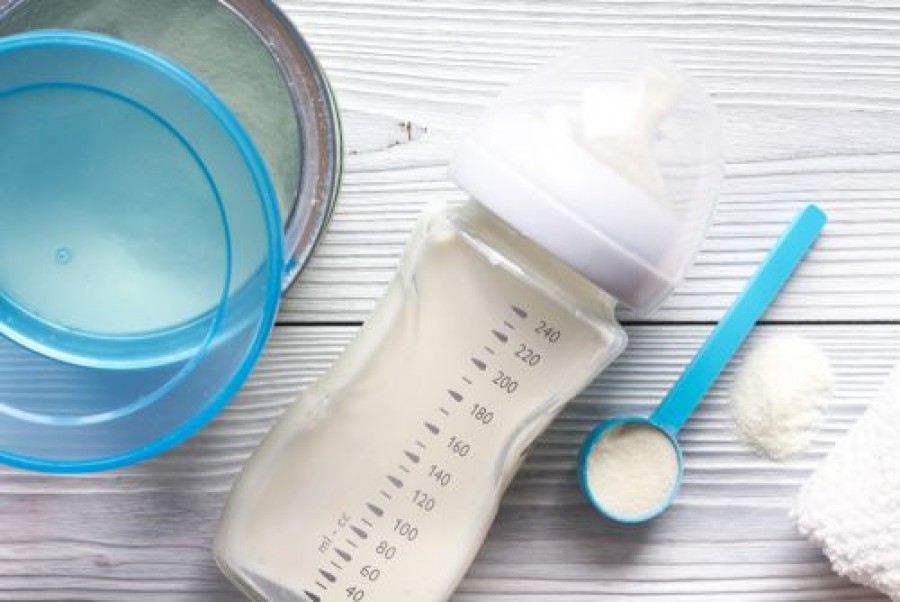
With parenthood, comes many important decisions.
One of those decisions is how you will feed your new bub.
The majority of new mums in Australia plan to breastfeed and start off breastfeeding, but plans don’t always work out – especially in parenthood.
Some women find breastfeeding difficult, and some simply choose not to breastfeed.
If you end up not breastfeeding, or find yourself needing to stop due to difficulties, you’ll need to choose an infant formula for your baby.
This can be a daunting task as there is a huge formula market with tons of various types and brands of infant formula available.
Take your time to learn about your choices, and rest assured that all infant formulas are designed with baby’s health and safety in mind.
Which Brand of Formula Should I Use?
There is quite a selection of different formula brands available.
It can be confusing to know which brand is best.
A lot of times, we may feel like if something is more expensive, it must be better.
Really though, there isn’t usually any notable difference between brands of formula.
All formula sold in Australia must meet strict regulations.
Due to these regulations, all brands of formula sold are safe for babies of the age that the tins say they are for.
What’s more important to consider than the brand of formula you choose, is the type of formula you choose.
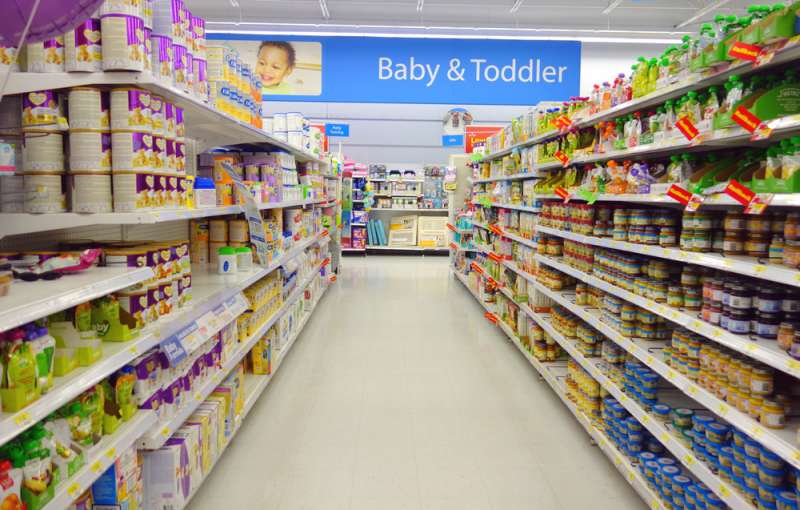
The Different Types of Formula
When you first realize just how many types of formula there are, it can be somewhat overwhelming.
Learning about each type and what it’s for is helpful and makes choosing a formula for your baby much simpler.
1. Cow’s Milk Based Formula
Formula that is based off of cow’s milk is the most common infant formula.
This formula is suitable for most babies, hence why it is the most common type of formula.
The amounts, as well as the types of things like protein, carbohydrates, fats, and minerals are changed in the cow’s milk.
This creates an infant-feeding substitute that is more similar to breastmilk than just regular cow’s milk.
2. Formula with Added Probiotics
Probiotics, or prebiotics, are healthy bacteria that can help the digestive system.
Some formulas have added probiotics to help keep your baby’s digestive tract healthy and balanced.
While the probiotics may indeed be beneficial, they are not necessary to your baby’s health and development.
3. Gold Formula
Many brands of formula offer a gold version.
This means that the formula has long-chain polyunsaturated fatty acids, or LCPUFAs, added to it.
These LCPUFAs are naturally occurring in breastmilk, but are not found in regular formulas. LCPUFAs are beneficial to development, specifically of the brain.
However, it is unknown if the LCPUFAs added to formula are able to be absorbed the same way as those found in breastmilk, and therefore there is no substantial evidence that gold formulas are better than any other formula.
4. Thickened Formula
Commonly known as AR (anti-regurgitation) formula, thickened formulas contain a thickening agent.
The purpose of this is to helpthe baby to keep the formula in their stomach and prevent them from spitting up as much.
This type of formula can sometimes be helpful for babies that suffer from reflux, but it isn’t guaranteed that it will make a difference.
If you suspect your baby has a problem with reflux, talk to your baby’s doctor before switching formulas.
5. Hypo-Allergenic Formula
Hypo-allergenic, or HA, formula is designed specifically for babies that are more likely to suffer from allergies.
The protein in HA formula has been further broken down than in regular formulas.
This type of formula might be a good choice for a baby that has immediate family members with allergies to foods, eczema, or even asthma.
If this applies to your baby, talk to their doctor about whether using a HA formula may be beneficial to your baby.
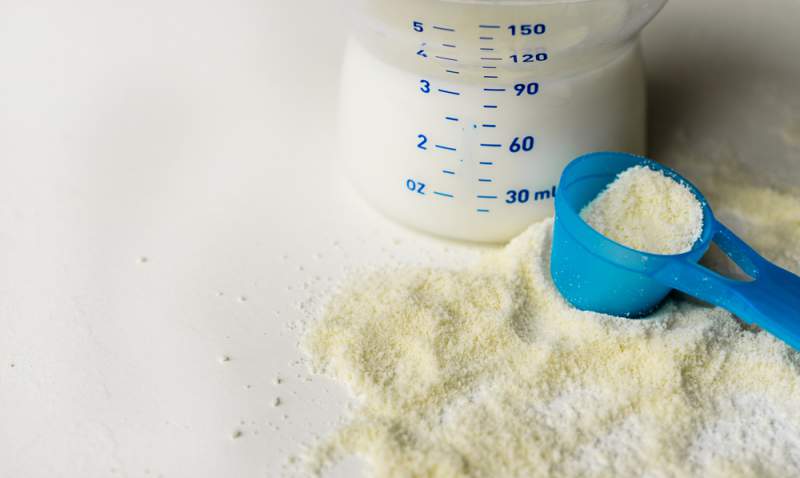
6. Extensively Hydrolysed Formula
In formula that has been extensively hydrolysed, the protein has been thoroughly broken down, even more so than the protein in HA formula.
This type of formula is designed for babies that have an allergy to cow’s milk.
The protein being already broken down greatly lowers the chance of the baby having an allergic reaction.
7. Lactose-Free Formula
Lactose, or milk sugar, is naturally occurring in both breastmilk as well as cow’s milk.
In some cases, a baby may not be able to properly break down lactose. If a baby is unable to break down lactose, they are known as lactose intolerant.
Lactose-free milk is made for those babies that are lactose intolerant. It’s important to note that being lactose intolerant is not the same as having a cow’s milk allergy.
8. Soy Based Formula
Soy beans are used to create soy based formula.
If your baby is allergic to cow’s milk, you may think you need to try a soy based formula.
However, many babies that have an allergy to cow’s milk, may also be allergic to soy.
Soy based formula is also free of lactose, but a lactose-free cow’s milk based formula is still considered to be a better choice for lactose intolerant babies.
9. Goat’s Milk Based Formula
Goat’s milk based formula is very similar to cow’s milk based formula.
In fact, the biggest difference between the two is price.
The goat’s milk based formula is typically more expensive, but if you can afford it and just prefer it, there is no reason that you shouldn’t give it to your baby over regular cow’s milk based formula.
10. Organic Formula
Organic formula contains the same things that regular formula contains.
The difference is that the ingredients of organic formula must meet certain qualifications to be considered
Certified Organic. Whether or not you use an organic formula is a completely personal decision.
Do I Have to Switch My Baby to Stage 2 Formula?
It’s likely that you’ve noticed that formula comes in different stages.
Anything beyond stage 1 formula is unnecessary.
It’s safe to switch to a stage 2 formula at 6 months if you prefer, but any formula that is for use from birth is good to use until baby is weaned from formula at 12+ months of age.
Stage 2 formulas usually have additional protein and iron in them, but your baby can get any additional needed protein and iron from the solid foods that they should begin consuming around 6 months of age.
Don’t use stage 2 formulas before 6 months of age as they are not appropriate for younger babies.
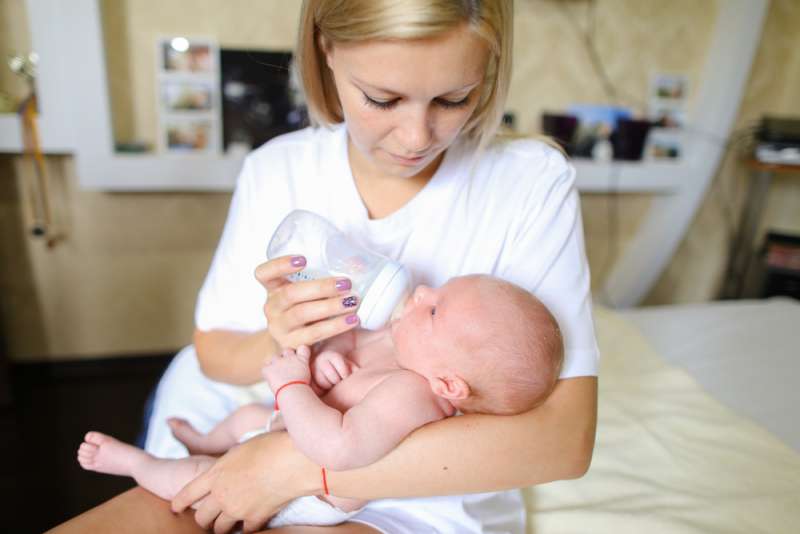
Formula Feeding Tips
Choosing the right formula for your baby is a great first step in formula feeding, but there are also other important things to learn and consider when using formula for your baby.
Tip #1: Follow Instructions on the Tin of Your Formula
You should very carefully follow the instructions on your formula’s tin.
Properly mixing your baby’s formula is vital.
Too much water or too much powder can cause serious health problems for your baby.
Pay very careful attention to directions if you switch to a different formula at any point, as the instructions for different formulas vary.
Only use the scoop that comes with the tin of formula.
Tip #2: Never Use a Microwave to Heat Formula
Formula can be given to babies chilled, at room temperature or warmed, but many babies tend to prefer their formula warm.
You should never use a microwave to warm your bub’s formula though.
Warming formula in a microwave can heat it unevenly and cause hot spots.
This can be very dangerous and burn your baby’s mouth. Safer ways to warm your baby’s formula are to put the bottle in hot water, run hot water over the bottle, or to use a bottle warmer specifically designed to heat formula to a comfortable temperature.
Tip #3: Don’t Prop Your Baby’s Bottle
Propping your baby’s bottle, especially if they are left unattended, can be very dangerous.
A propped bottle increases the risk of your baby choking and can even leave them at a higher risk of problems like ear infections.
Plus, even if you aren’t breastfeeding, feeding your baby is a valuable time to bond with and enjoy your baby.
Tip#4: Keep Things Clean
It’s very important to be as sanitary as possible when dealing with your baby’s formula.
You should always wash your hands before preparing your baby’s formula. You should also make sure that the bottles you make your baby’s formula in are sanitized properly before using them.
Keeping everything as clean as possible will help prevent your baby from consuming any dangerous bacteria.
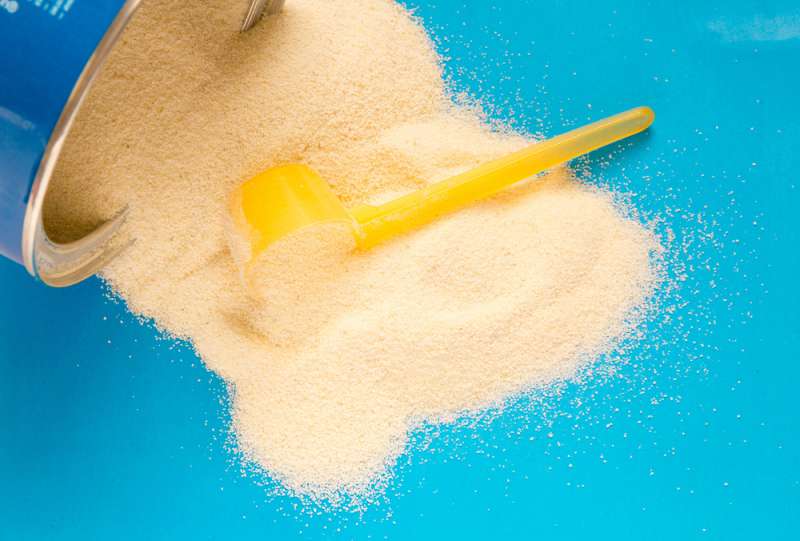
Don’t Stress Yourself Out
Making important decisions about your baby’s health such as what you’ll feed them can certainly be stressful.
Luckily, thanks to strict regulations, all infant formulas sold in Australia are safe for babies to consume.
Simply learning about the different types of formula available should make choosing the right one for your baby an easy task. It’s also always a good idea to consult your baby’s doctor about what the best formula for them is.
Always follow the instructions on your formula’s tin, and listen to the advice of your baby’s doctor and your baby should be just fine. As long as you do these things, there’s really no reason to worry.
Just enjoy every moment during this wonderful time in yours and your bub’s life.
Product Reviews by Mothers
Nurture Original Infant Formula 1 Review
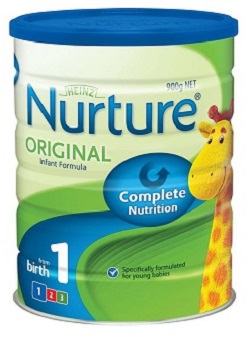
Thankfully, there are many great formulas available to assist a baby who isn’t breastfeeding to its full potential. Heinz Nurture Original Infant Formula 1 is a great product that is suitable for babies from infancy. In fact, it is possible to start a baby feeding on this formula for their first feed out of the womb, if need be. Read more…
Blackmores Newborn Formula Review
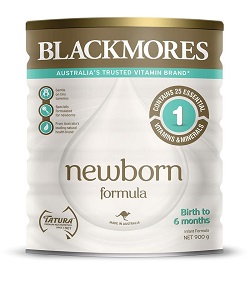
Finding a quality formula you can trust is important, and you want to make sure the product is good from thorough research before giving something you are unsure of to your newborn. Ingredient and nutritional comparisons, pricing the products, and investigating the manufacturers behind dozens of products takes a lot of time and energy. Read more…
Oli6 Dairy Goat Infant Formula Stage 1 Review
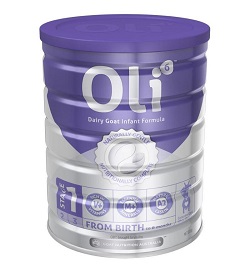
Oli6 Dairy Goat Infant Formula is a unique infant formula on the market as it is made from goat’s milk. There is a positive balance of the natural benefits of goat’s milk and the scientific development and formulation that ensures it provides all the nutrients a growing neonate needs. Read more…
A2 Platinum Premium Infant Formula Stage 1 Review
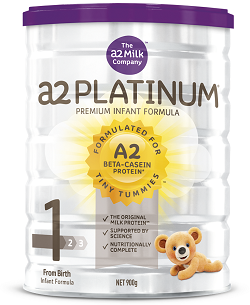
The powder that makes up this milk formula is exclusively based on the naturally occurring a2 milk. Therefore, it only contains the a2 type of beta-casein protein which doesn’t include the a1 beta-casein. Having this important a2 protein provides a sturdy foundation for the nutritional value and importance. The other ingredients that come after this protein make a2 Platinum Premium Infant Formula nutritionally complete and reliable for a baby’s growth and development. Read more…



